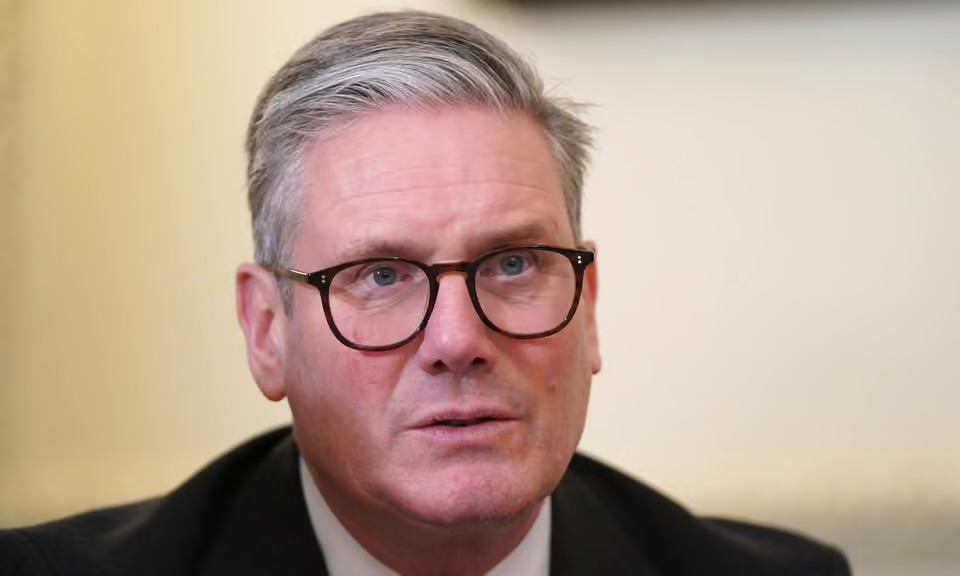Keir Starmer is facing increasing pressure to strengthen economic relationships with Europe, five years after Brexit, as a significant new poll reveals that voters overwhelmingly prefer prioritizing trade with the EU over the US.
A recent MRP survey conducted by YouGov for the Best for Britain think tank, which included nearly 15,000 respondents, shows that constituents across England, Scotland, and Wales favor closer ties with the EU rather than expanding transatlantic trade with Washington. MRP polls leverage large data samples to estimate local opinion.
Notably, even in Nigel Farage’s constituency of Clacton, more voters believe that the UK would benefit more from trading with European neighbors than with the US under Donald Trump’s leadership.
These findings come as Chancellor Rachel Reeves stated in an interview with the Observer that Brexit has had detrimental effects on the UK economy. She expressed her commitment to recovering some of the lost gross domestic product (GDP) by minimizing trade frictions for small businesses. In a clear acknowledgment of Brexit’s impact, Reeves affirmed that leaving the EU had harmed the UK’s financial position.
While attending the World Economic Forum in Davos last week, Reeves discussed strategies to enhance trade with EU finance ministers. She mentioned “numerous external estimates” that highlight Brexit’s negative consequences for the UK economy, adding, “My aim is to regain some of that GDP by establishing a better trading relationship with the European Union.”
Reeves expressed enthusiasm for a proposal from the EU’s new trade chief, Maroš Šefčovič, who suggested the UK consider joining the Pan-Euro Mediterranean Convention (PEM). The PEM outlines common rules for sourcing components and ingredients for tariff-free trade.
“They wouldn’t have made such suggestions a year or two ago due to a lack of interest from the UK government. The fact that these discussions are now happening indicates that there is a better deal to be pursued than our current arrangement,” Reeves stated.
Despite Starmer’s government previously hesitating to deepen connections with the EU for fear of strengthening support for Reform among Brexit proponents, the Treasury now appears focused on boosting economic growth through improved trade relations.
Under the current post-Brexit arrangements established by Boris Johnson, the UK is outside both the EU single market and customs union. As a result, UK companies face time-consuming and costly delays at borders due to checks when trading with the EU. Additionally, UK citizens can no longer travel to work in the EU as they did under previous freedom of movement rules.
The poll found that 46% of respondents believe the EU should be the government’s top trade priority, compared to only 21% who favor the US.
This data comes shortly after Trump was sworn in for a second term as US president, vowing to impose significant tariffs on imports. Any potential UK trade deal with the US may require the acceptance of food imports that violate current UK and EU regulations, such as chlorinated chicken and hormone-injected meat.
Naomi Smith, chief executive of Best for Britain, remarked, “Trade doesn’t have to be an either/or scenario, but it’s evident that when it comes to priorities, from Cairnryan to Clacton and Newport to Newcastle, Britain favors a closer relationship with the EU first.”
“With Trump poised to introduce new tariffs as soon as this week, the government should heed voters’ opinions and work to eliminate trade barriers with our largest market before seeking deals elsewhere. This approach is essential for Starmer to achieve his growth ambitions, alleviate price increases for UK consumers, and provide British businesses with a competitive edge in an increasingly protectionist global landscape.”
In an article for the Observer, Praful Nargund, a Labour candidate in the last election and director of the Good Growth Foundation, noted, “To tackle our economic stagnation, we cannot overlook the EU. This issue has always had a political dimension. By aligning with public priorities, we can pursue a closer relationship with the EU that could be electorally beneficial.”
Marley Morris, an associate director at the Institute for Public Policy Research think tank and author of several Brexit-related reports, stated, “As the UK’s closest and most significant trading partner, the EU must be the central focus of the government’s new trade strategy. The existing trade deal is not functioning effectively, with UK businesses encountering numerous barriers to selling goods and services in the EU.”
The Best for Britain poll revealed even stronger support for closer EU-UK ties among voters who switched from Conservative to Labour in the last election (57%). Among Labour voters, two-thirds (66%) believe the government should prioritize EU trade, compared to just 9% for Trump’s US.
Support for prioritizing trade with the EU is also evident in constituencies heavily targeted by Labour in the last general election, including Ribble Valley and Stoke-on-Trent. In Scotland and Wales, battleground seats such as Stirling and Strathallan, as well as Llanelli, also favor prioritizing trade with the EU.











Leave a Reply